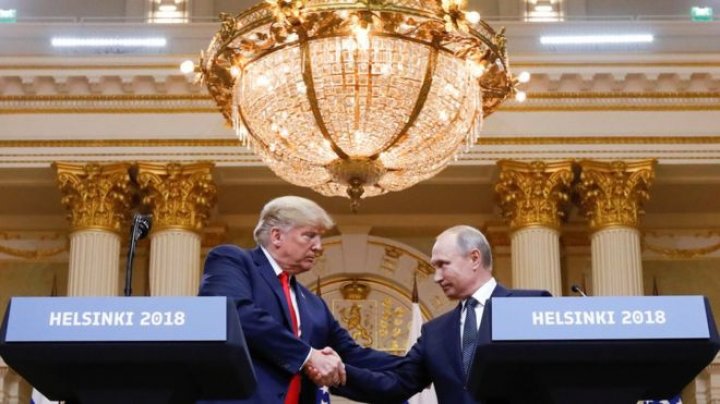Trump shocked after meeting Putin yesterday in Helsinki
 publika
publika
The Helsinki summit between Vladimir Putin and Donald Trump is over, and after nearly two hours behind closed doors and another hour in front of the press, there's plenty of material to sort through.
Leading into the meeting, Democrats were warning Mr Trump to be careful in dealing with his Russian counterpart - with some suggesting that it was unwise for the US president to even hold such an event, given Friday's indictments of 12 Russian military officers for conducting cyber-warfare against the US during the 2016 elections.
Many Republicans, on the other hand, were cautiously optimistic that the president would push back against Mr Putin on a range of issues. Congressman Steve Scalise, a Republican house leader, said that Mr Trump entered into the negotiations "from a position of American strength to combat Russian aggression".
Things went … a bit differently. Here are some key takeaways.
'We're all to blame'
Mr Trump, in his first question from an American reporter, was pressed to explain why earlier in the day he had tweeted out that US was to blame for the current tense state of US-Russia relations.
In his answer, he stood by his earlier comments and said he held "both countries responsible".
He said both sides had "made some mistakes" - but declined to specifically mention items like the Russian military involvement in Ukraine and its annexation of Crimea, the Novichok chemical attack in southern England and the indictment of Russians for meddling in the US election.
Instead, he insisted there was "no collusion at all" between his campaign and Russia, conflating charges of election meddling - for which there have been indictments of Russian nationals - with evidence of collusion, which the Mueller probe has not yet alleged.
When asked if he would directly condemn Russia and Mr Putin on election meddling, Mr Trump said his intelligence officials - including Director of Intelligence Dan Coats - have told him "they think it's Russia". Mr Putin, he continued, just told him it's not Russia.
"I don't see any reason why it would be," Mr Trump concluded, apparently leaning toward the Russian professions of innocence over the conclusions of his own government.
This has put the US intelligence community in a familiar bind, given Mr Trump's past criticisms. It's a bind, however, for which Trump-appointed leaders, in office for more than a year, are now accountable.
Read more on bbc.com.